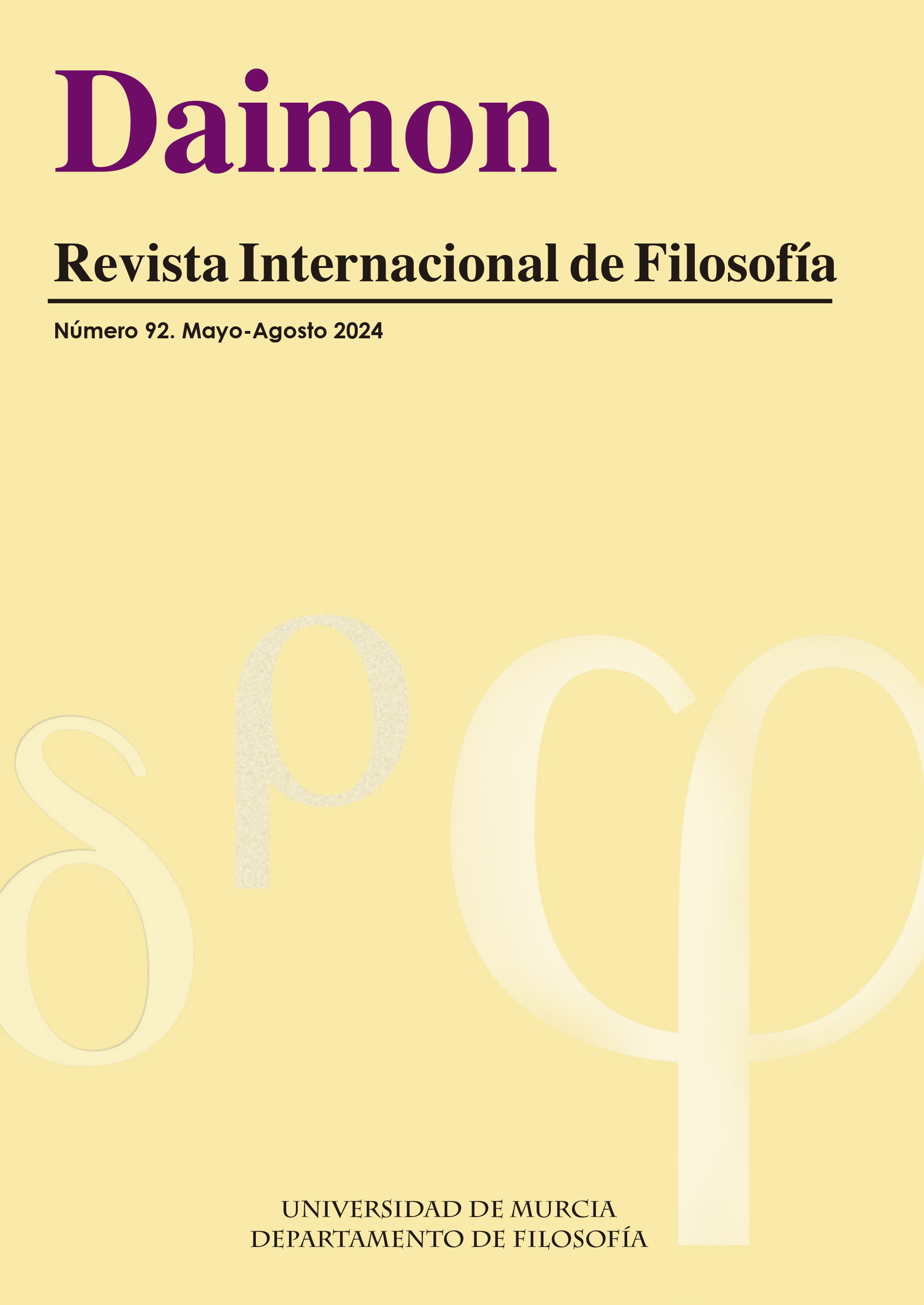La búsqueda y el fracaso en la inteligibilidad como parte de la construcción de la identidad dramática
Agenzie di supporto
- Este artículo ha sido posible gracias al proyecto de investigación nacional Epistemología política: patologías del conocimiento, con referencia: PGC2018-097750-B-I00. Financiado por la Agencia estatal de investigación (AEI).
Abstract
La Teoría narrativa de la identidad trata de dar respuesta a múltiples inquietudes sobre construcción del autoconcepto. Esta sugiere que el sujeto da sentido a su experiencia al asimilarla como un conjunto de narraciones que explican su existencia. Esto le proporciona una base que le facilita adquirir autocomprensión y planificar sus acciones. Sin embargo, la Teoría Narrativa de la identidad es incapaz de enfrentar importantes dificultades relacionadas con la inteligibilidad y la interacción social. Este trabajo presenta una propuesta alternativa a través de la Teoría dramática de la identidad, que centra su estudio en la agencia del sujeto.
Downloads
-
Abstract416
-
PDF (Español (España))183
-
HTML (Español (España))41
Riferimenti bibliografici
Brandon, P. (2016), “Body and self: an entangled narrative”, Phenomenology and the Cognitive Sciences, 15, p. 67.
Broncano, F. (2017), Racionalidad, acción y opacidad. Sujetos vulnerables en tierras libres, Argentina: Editorial universitaria de Buenos Aires (EUDEBA).
Crone, K. (2018), “Understanding others, reciprocity, and self-consciousness”, Phenomenology and the Cognitive Sciences, 17, pp. 267–278.
Gallagher, S. (2008), “Direct perception in the intersubjective context”, Consciousness and Cognition, 17, 535–543.
Goffman, E. (1956), The presentation of self in everyday life, Edinburgo: Universidad de Edinburgo.
Goldie, P. (2004), On personality. Thinking in action, Londres: Routledge.
Goldie, P. (2012), The Mess Inside: Narrative, Emotion, and the Mind, Londres: Oxford University Press.
Hardt, R. (2018), “Storytelling agents: why narrative rather than mental time travel is fundamental”, Phenomenology and the Cognitive Sciences, 17, 535–554.
McCoy, T. P., & Dunlop, W. L. (2016), “Contextualizing narrative identity: A consideration of assessment settings”, en Journal of Research in Personality, 65, 16–21.
Mackenzie, C. (2009), “Personal identity, narrative integration, and embodiment”, Campbell, S., L. Meynell, L., & Sherwin, S. (eds.), Embodiment and agency, Pensilvania: Pennsylvania University Press, pp. 100–125.
Mackenzie, C. (2014), “Embodied agents, narrative selves”, en Philosophical Explorations, 17 (2), pp. 154–171.
McLean, K. C., Pasupathi, M., & Pals, J. L. (2007), “Selves creating stories creating selves: A process model of self-development”, en Personality and Social Psychology Review, 11, pp. 262–278.
McLean, K. C. (2015), The co-authored self: Family stories and the construction of personal identity, Nueva York: Oxford University Press.
Rivero-Obra, M. (2016), La dramatización del sujeto como construcción del proceso agencial. La analogía del actor en David J. Velleman. Tesis doctoral. Universidad Carlos III de Madrid.
Rudd, A. (2012), Value and Narrative: a Kierkegaardiand Account, Oxford: OUP.
Strawson, G. (2015), “I am not a story”, http://aeon.co/magazine/philosophy/the-dangerous-idea-that-life-is-a-story/
Velleman, J. D. (2003), “Narrative explanation”, The Philosophical Review, 112 (1), pp. 1–25.
Velleman, J. D. (2006), Self to self, Nueva York: Cambridge University Press.
Velleman, J. D. (2009), How we get along?, Nueva York: Cambridge University Press.
Copyright (c) 2024 Daimon

Questo articolo è soggetto a licenza Creative Commons Attribution-NonCommercial-NoDerivatives 3.0 International License.
Las obras que se publican en esta revista están sujetas a los siguientes términos:
1. El Servicio de Publicaciones de la Universidad de Murcia (la editorial) conserva los derechos patrimoniales (copyright) de las obras publicadas, y favorece y permite la reutilización de las mismas bajo la licencia de uso indicada en el punto 2.
2. Las obras se publican en la edición electrónica de la revista bajo una licencia Creative Commons Reconocimiento-NoComercial-SinObraDerivada 3.0 España (texto legal). Se pueden copiar, usar, difundir, transmitir y exponer públicamente, siempre que: i) se cite la autoría y la fuente original de su publicación (revista, editorial y URL de la obra); ii) no se usen para fines comerciales; iii) si remezcla, transforma o crea a partir del material, no podrá distribuir el material modificado.
3. Condiciones de auto-archivo. Se permite y se anima a los autores a difundir electrónicamente las versiones pre-print (versión antes de ser evaluada) y/o post-print (versión evaluada y aceptada para su publicación) de sus obras antes de su publicación, ya que favorece su circulación y difusión más temprana y con ello un posible aumento en su citación y alcance entre la comunidad académica. Color RoMEO: verde.











